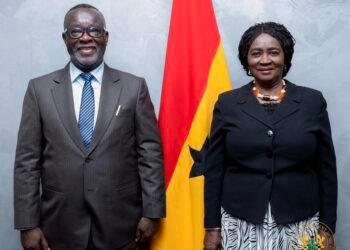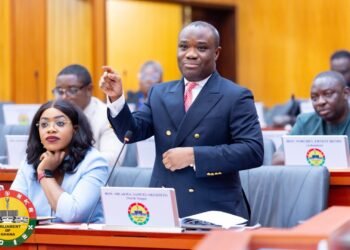The prevailing sentiment among a significant segment of the Ghanaian populace is one of despondency and disillusionment.
This sentiment among many sections of the public stems from the failure of successive governments to deliver on their mandate and campaign promises leading to a perceived sense of hopelessness, eroding trust in the current political establishment and fueling cynicism towards the democratic process.
Many citizens feel marginalized and voiceless, relegated to the sidelines of a political arena that seems increasingly detached from their everyday realities.
The perceived disappointment among the Ghanaian public is affirmed by the latest Afrobarometer report.
The report revealed that while 75.9 per cent of Ghanaians preferred democracy to any form of government, approximately 32. 6 per cent believed the country’s democracy is problematic.
Again, a total of 31.3 percent of Ghanaians per the Afrobaromter’s survey asserted that they are not satisfied with Ghana’s democracy while 17. 4 per cent said they are not at all satisfied with the country’s democratic governance.
Dr. Kwame Asiedu Sarpong, a respected Research Fellow at the Ghana Centre for Democratic Development (CDD-Ghana), has sparked a crucial conversation by questioning the very essence of Ghana’s democratic journey.
His painful reflections on the failure of Ghana’s political system to fulfil the aspirations of its citizens are mainly a result of unfulfilled promises by political leaders and the country’s perceived stagnant progress.
He noted that for many Ghanaians, the promise of democracy was meant to usher in an era of prosperity, equality, and robust citizen participation, yet, as the years have unfolded, the reality has fallen short of these lofty ideals.
Dr Sarpong bemoaned how both past administrations and the incumbent regime have struggled to translate electoral victories into tangible improvements in the lives of the ordinary Ghanaians.
This, he argued has widened the gap between promise and reality leaving many Ghanaians feeling disenchanted and disheartened.
Central to Dr. Sarpong’s critique is a fundamental question of whether the country’s political leaders and citizens truly understand what democracy entails.
He questioned whether beyond the ritualistic exercise of multi-party elections, Ghanaians, particularly political leaders grasp the deeper principles of democratic governance, such as accountability, transparency, and inclusivity.
His inquiry strikes at the heart of what he described as a national identity crisis, thereby urging all well-meaning Ghanaians to confront the uncomfortable truths about the state of Ghana’s democracy.
“After a lot of reading, I am wondering whether we understand what democracy is. I also wonder if the framers of our Constitution were certain of what democracy was and how the document they drafted would lead to our accelerated development”
Dr Kwame Asiedu Sarpong, Research Fellow CDD-Ghana

The Essence of Democracy to Citizens
Moreover, the Ghana Centre for Democratic Development Research Fellow questioned the essence of democracy to ordinary Ghanaians.
He quizzed whether democracy to ordinary Ghanaians is merely the right to participate in periodic elections, or it encompasses a broader ethos of civic engagement, social justice, and collective empowerment.
He further asked whether democracy can flourish within the confines of a rigid multi-party framework, or whether there is a need for the country to explore alternative models that prioritize consensus-building and collaboration across ideological divides.
As Ghana marks 31 years since its transition to democratic rule, these questions assume heightened significance.
Dr. Sarpong’s impassioned plea serves as a rallying call for renewed civic engagement and democratic renewal.
It is a call to action for all stakeholders, particularly political leaders, civil society organizations, political parties, and ordinary citizens to recommit themselves to the ideals of democracy and work tirelessly towards building a more just and prosperous society.
As Ghana continues to confront the shortcomings of its political system and grapple with the complexities of democratic governance, political leaders must acknowledge that the true measure of democracy lies not only in the perfection of state institutions, but in the unwavering commitment of leaders to the values of freedom, justice, and equality for all.
READ ALSO: Israel’s Credibility Suffers Blow























